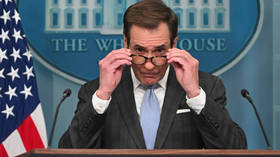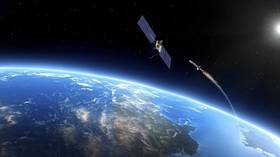‘No reason’ for Russia not to support US-backed resolution on nukes in space – White House

Washington expects Moscow to vote in favor of a US-backed resolution about non-deployment of nuclear weapons in space, White House National Security Communications Advisor John Kirby said on Thursday.
The document will be brought to a vote at the UN Security Council in New York next week, Kirby added. The draft resolution states that countries “should not develop nuclear weapons or any other kinds of weapons of mass destruction designed to be placed in orbit.”
The draft resolution was prepared by the US and Japan after Bloomberg reported in February that officials in Washington believe that Moscow could deploy a nuclear anti-satellite weapon or a mock warhead to space as early as this year. Moscow vehemently denied the claim, which Russian President Vladimir Putin dismissed as “unfounded accusations.”
“We have heard President Putin say that Russia has no intention of deploying nuclear weapons in space,” Kirby said on Thursday. “So we look forward to Russia voting in favor of this resolution. There should be no reason why not,” he added.
If adopted, the proposal would reaffirm expectations that countries must “fully comply” with their obligations under the 1967 Outer Space Treaty, which bans weapons of mass destruction in orbit.
Russia has since criticized the draft resolution as being “detached from reality.” According to Russian First Deputy Permanent Representative to the UN Dmitry Polyansky, the document has not been drafted or discussed by internationally recognized experts in the area. Russia has veto power in the UN Security Council as a permanent member.
Putin said in February that Russia has always been strongly against deploying nuclear weapons in space. However, he added that Washington is trying to drag Moscow into negotiations that are exclusively beneficial to the US. The president noted that Russia offered the US a draft treaty on preventing the deployment of nuclear weapons in orbit back in 2008 but pointed out that Washington has blocked the proposal ever since.
In late 2021, the US Space System Command announced plans to develop “next-generation” satellites in response to “growing space threats.” It was reported in October that the Space Force was going to build nuclear-survivable satellites for the US military and its nuclear command, control and communications network. In January, a senior Pentagon official described space as America’s “most essential warfighting domain” and that it was integral to the country’s national security.













